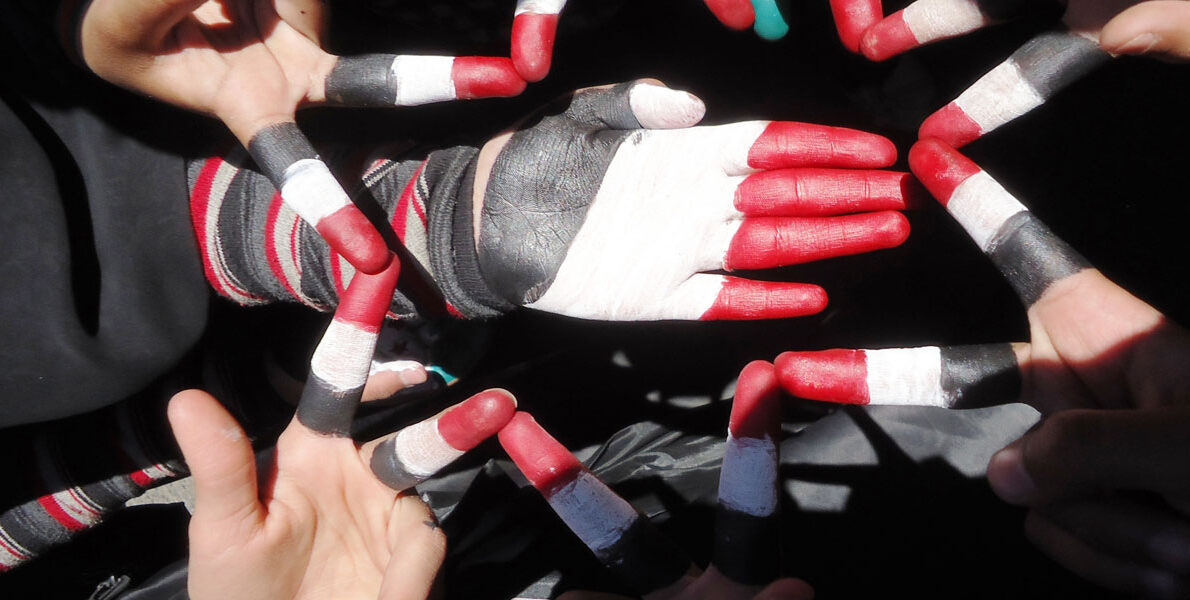By Jennifer Brookland
In a historic first for Yemen, President Abdrabbuh Mansour Hadi convened the National Dialogue Conference on March 18, sparking a six-month process designed to address the country’s most pressing state-building issues.
Counterpart International’s Responsive Governance Project (RGP) in Yemen was one of only five international NGOs invited to attend the opening event at the Presidential Palace.
The invitation came after RGP spent several intense weeks preparing civil society organizations and government authorities for the dialogue—and more than two years building their capacity to lead.
“I am truly honored to have been invited to this historic opening ceremony of the National Dialogue to represent the international community,” says Hassan Baroudy, Counterpart’s Chief of Party for RGP in Yemen. “It gives me great pleasure to witness Yemen continuing on the path of reconciliation and meeting the ambitions of its people for a better future, and to know that RGP played a constructive role in assisting the National Dialogue to come to light.”
Two high-security bus rides brought Baroudy—and more than 1,000 others—to the opening event, which was themed “Through dialogue, we make the future.”
“The room was electric, filled with enthusiasm and hope for the future of Yemen,” Baroudy says.
It was an event the RGP was well prepared for.
It began hosting National Dialogue-specific events just two and a half weeks after President Hadi made his Feb. 6 announcement about the date of the much-anticipated National Dialogue.
Two RGP-led orientation sessions brought together 112 representatives from 89 civil society organizations from all across Yemen together to learn about the conference and how they could best represent their positions.
Sessions like these also allowed for a facilitated exchange between the government and civil society—two groups that have not always collaborated in Yemen.
“The importance of teamwork and working collectively is the most important benefit I received from this orientation session,” says civil society representative Abdulnasser Al-Raisi.
RGP activities are aimed at achieving a more inclusive, responsive and collaborative national transition and dialogue process.
Ultimately, the program seeks to strengthen the capacity of Yemeni civil society to effectively participate in the National Dialogue and the redrafting of the Constitution, and increase government responsiveness to public needs.
Setting up for success
In the weeks leading up to the National Dialogue, RGP rapidly worked with a local partner organization to develop a youth volunteer program for the conference—a delicate balancing act when choosing young people from certain regions or backgrounds as it could be misinterpreted and may make an unwanted political statement.
The RGP was particularly active in building up the skills of female participants in advance of the National Dialogue, providing workshops on communication, negotiation and management, and helping to finalize the Women’s National Agenda.
More than 100 women from across the country—many hoping to participate in the actual dialogue—convened at an RGP conference to decide on the finished agenda.
The final product outlines top priorities for women on issues including political participation, discriminatory laws, health and education, and issues facing women in conflict areas.
The women then organized workshops in their own communities to disseminate the agenda and mobilize other female leaders to support it.
With some training and support from RGP, women’s rights leader Bilques Al-Lahbi decided to apply to be an official delegate to the National Dialogue.
She is one example of how RGP is giving people with every right to participate a chance to do just that.
“Now I have been selected to represent Yemen at these most critical negotiations for the future of our country!” Al-Lahbi says.
Beyond civil society strengthening, RGP worked with the organizers of the National Dialogue to identify gaps in preparing for the milestone, and supported them with human and technical resources to ensure the event was transparent and accessible.
A meaningful opportunity
The National Dialogue, part of the transition initiative brokered by the Gulf Cooperation Council, was described by the President as setting the groundwork “for good governance and a modern civil state.”
“This is an opportunity for all segments of Yemeni society to participate positively and meaningfully in charting a new course for Yemen,” wrote the U.S. State Department following the opening event.
During the next six months the 565 dialogue representatives—politicians joined by a smattering of independent youth, women and NGOs—will discuss nine priority issues including reconciliation and good governance.
The conference is part of a deal that included former President Ali Abdullah Saleh’s 2011 removal from office following street uprisings. No other so-called “Arab Spring” country has embarked on such a process of inclusive dialogue and negotiation.
Yemen’s ongoing political transition will culminate in a new constitution and elections scheduled for February 2014.



